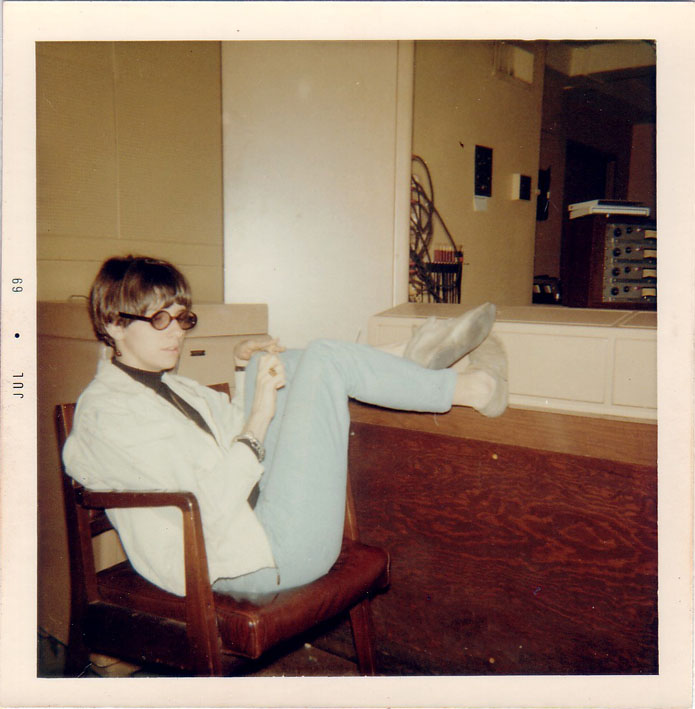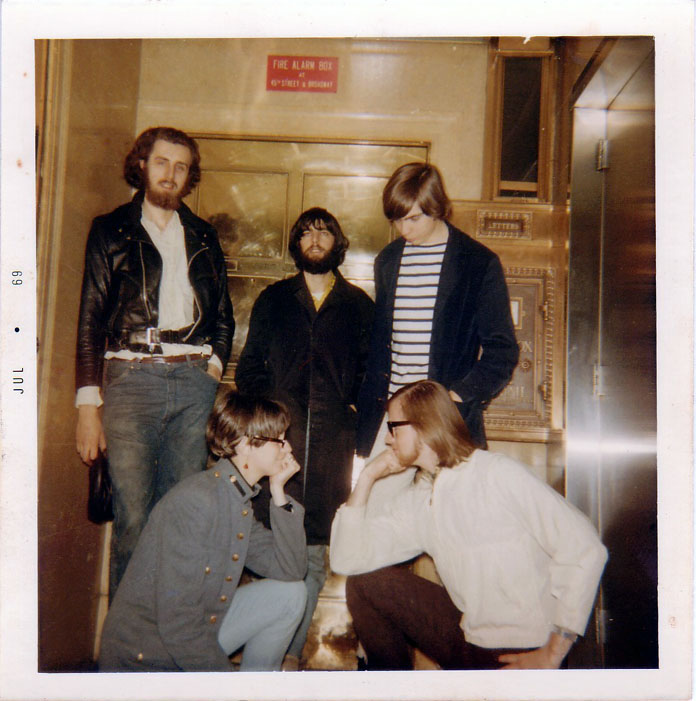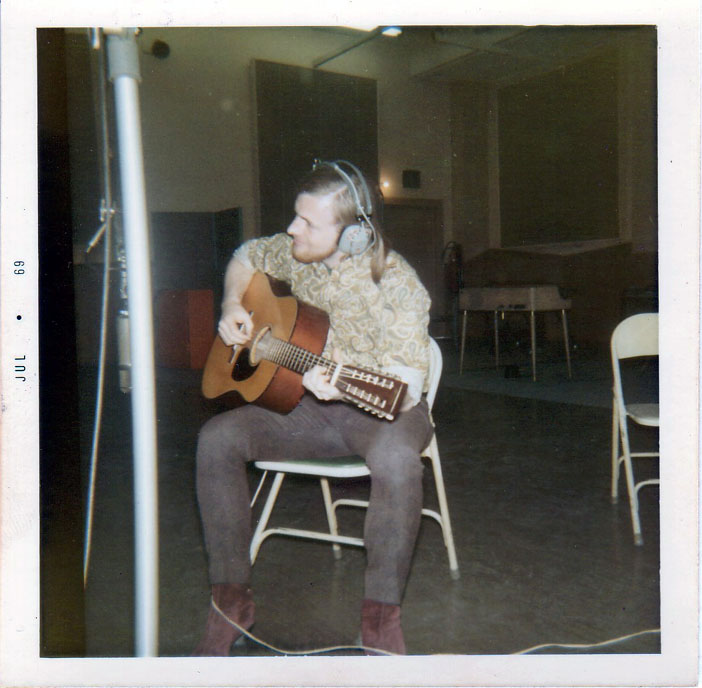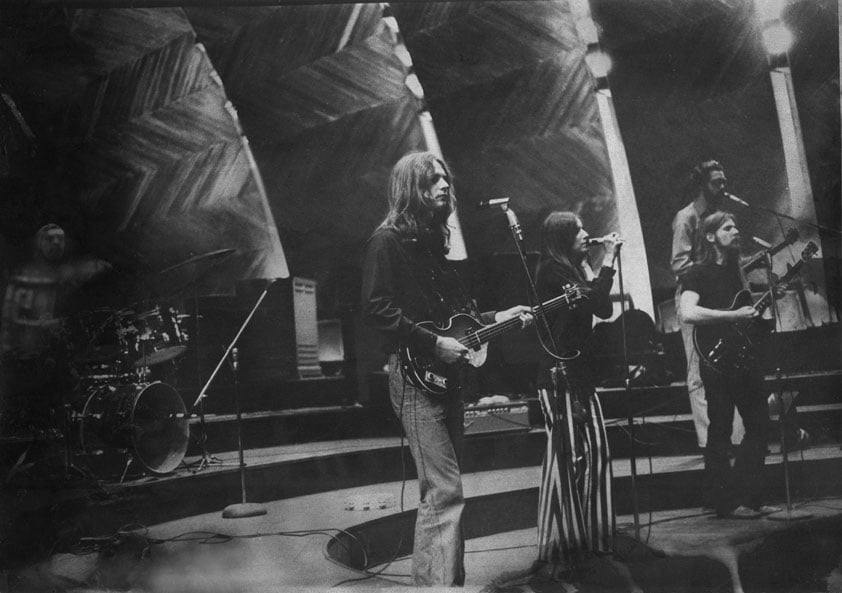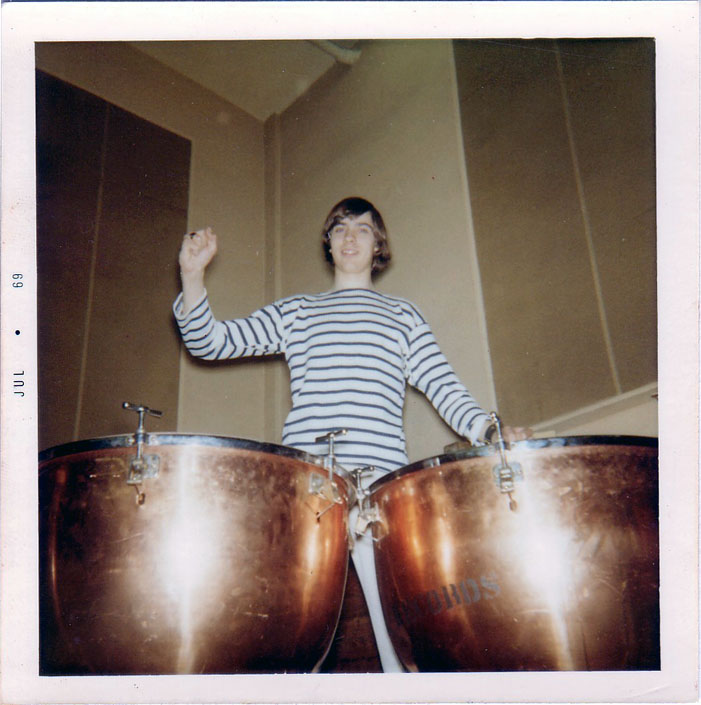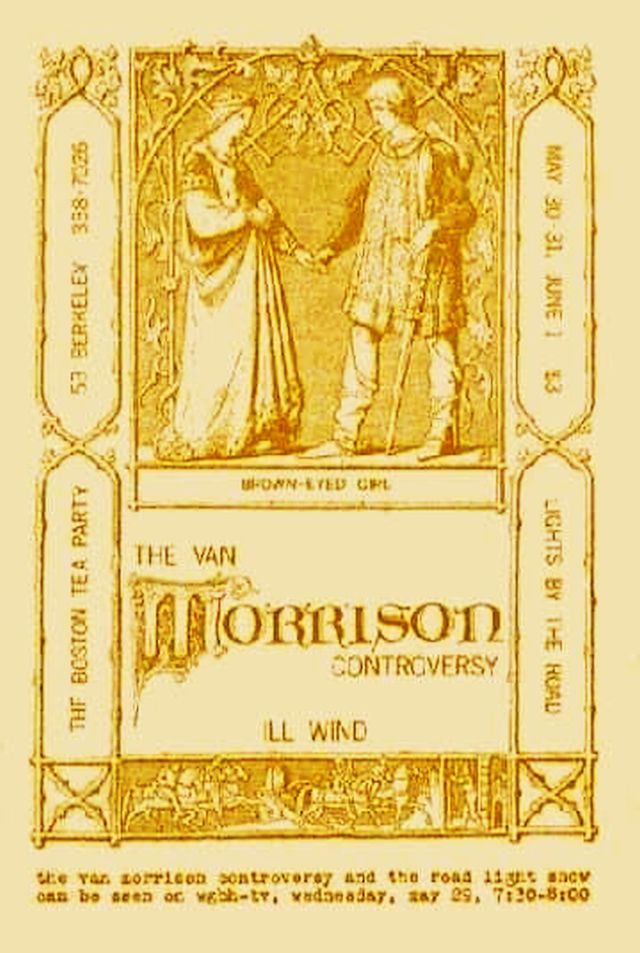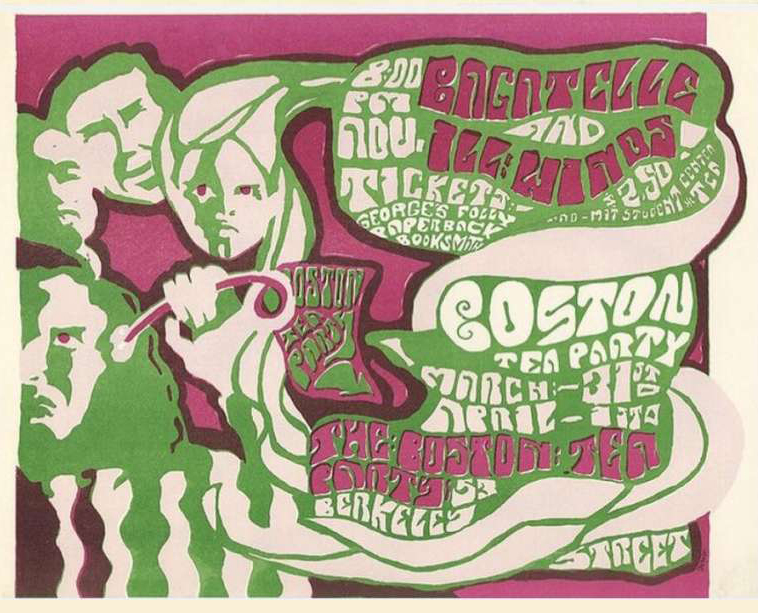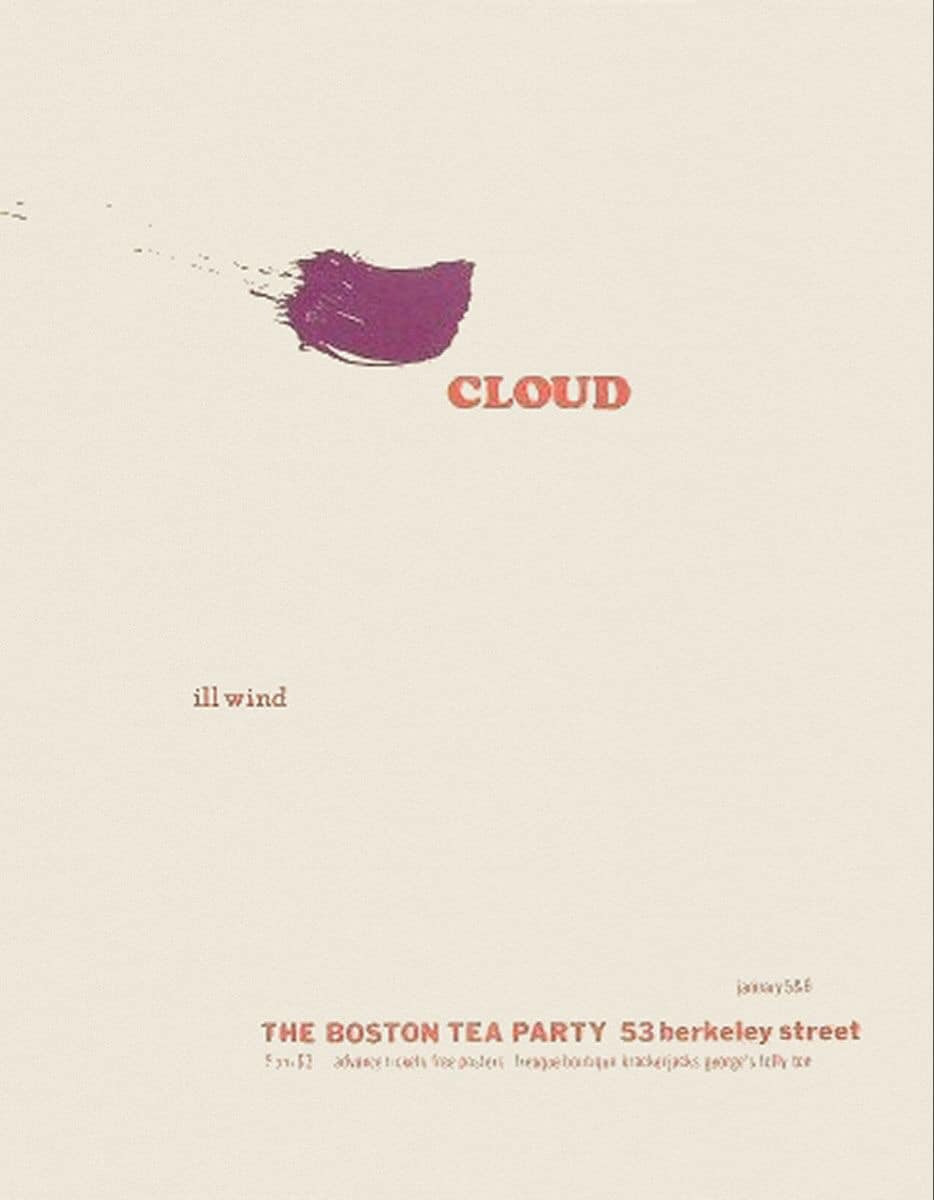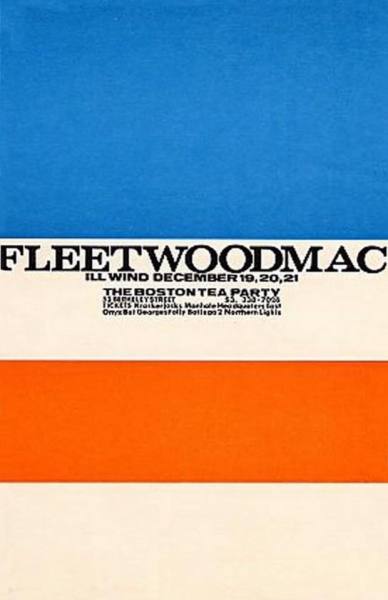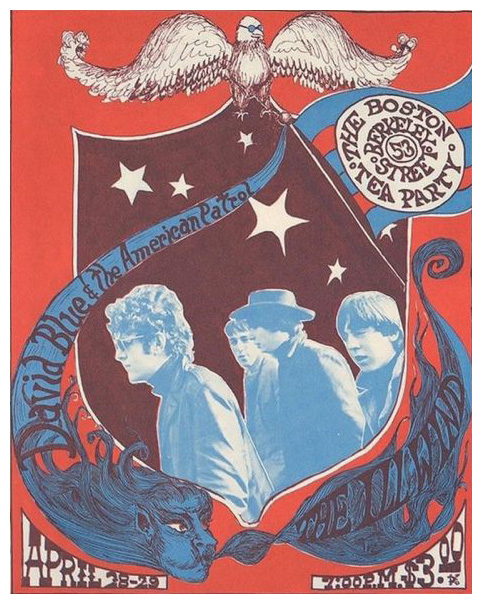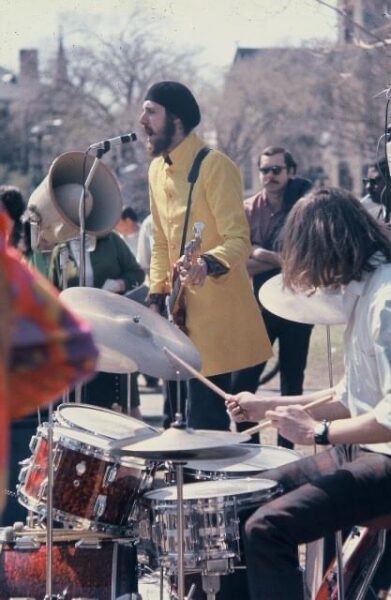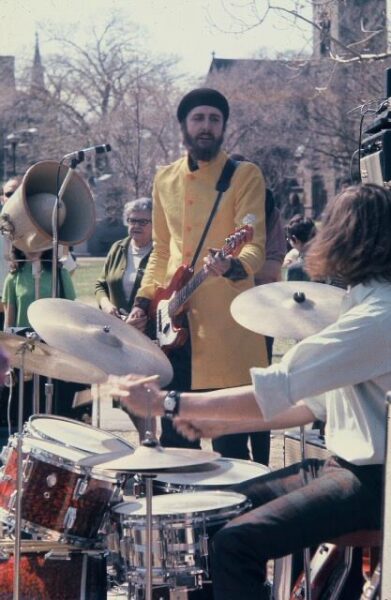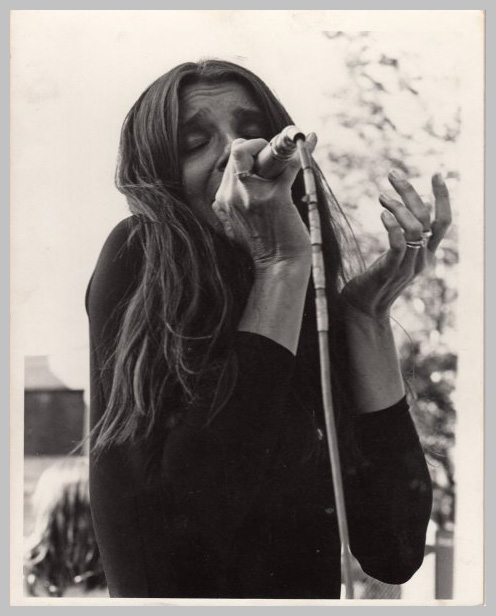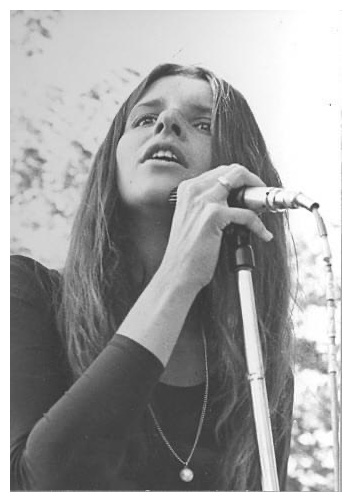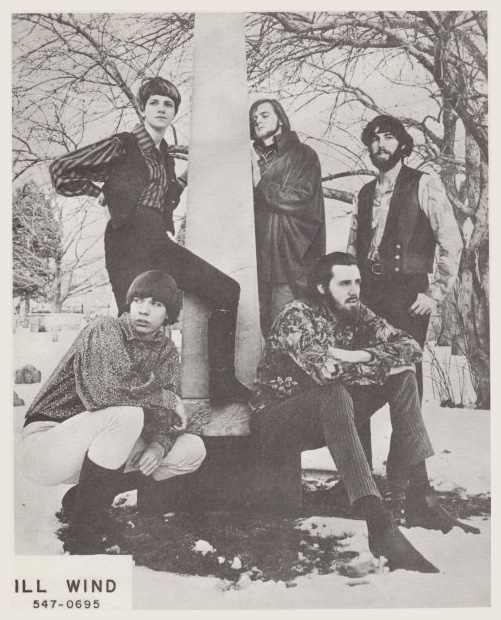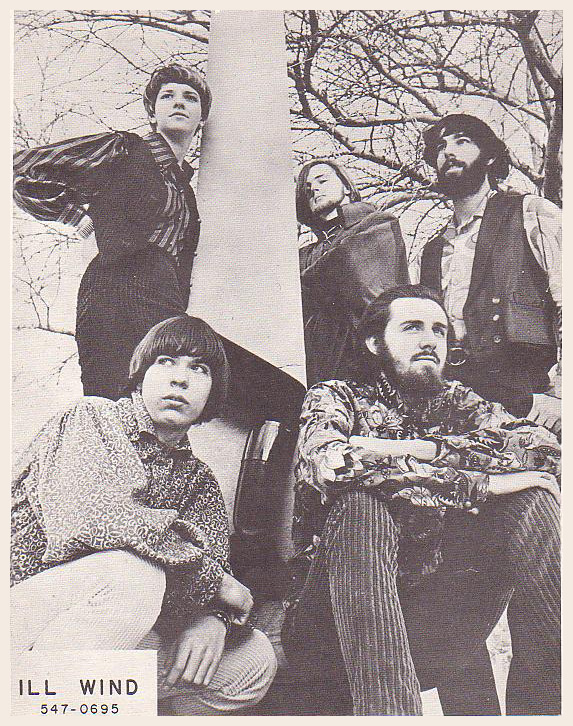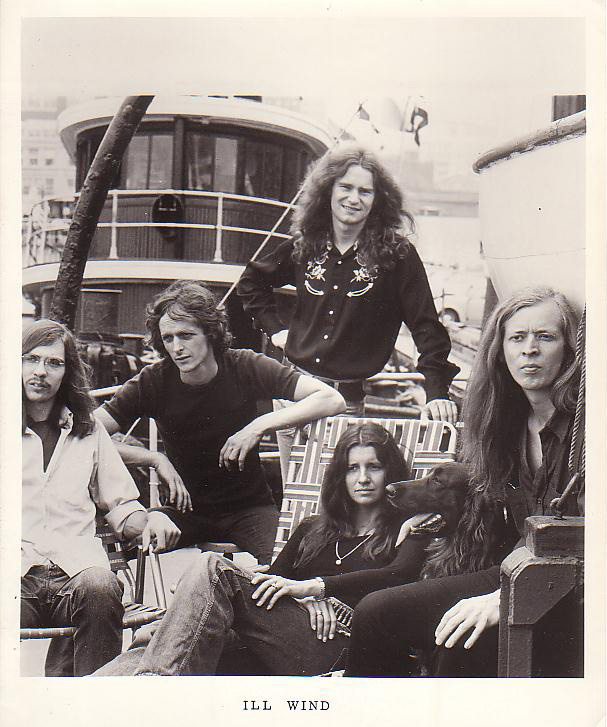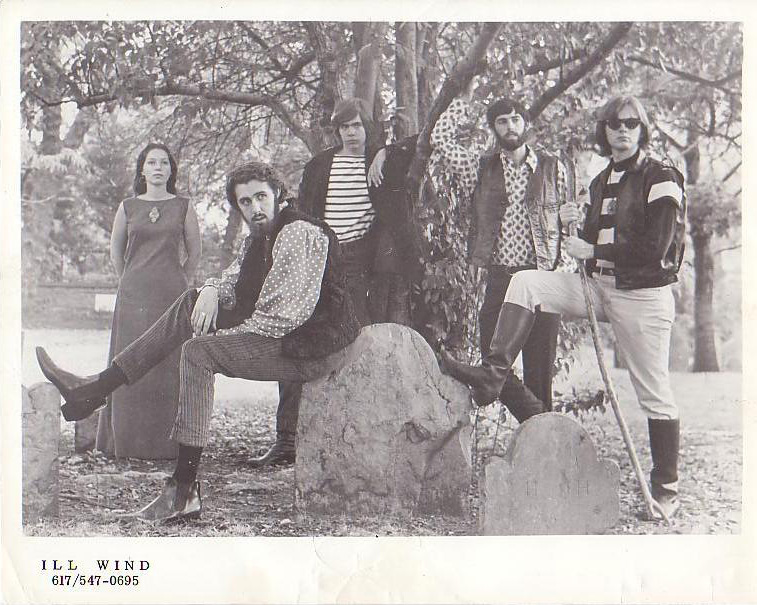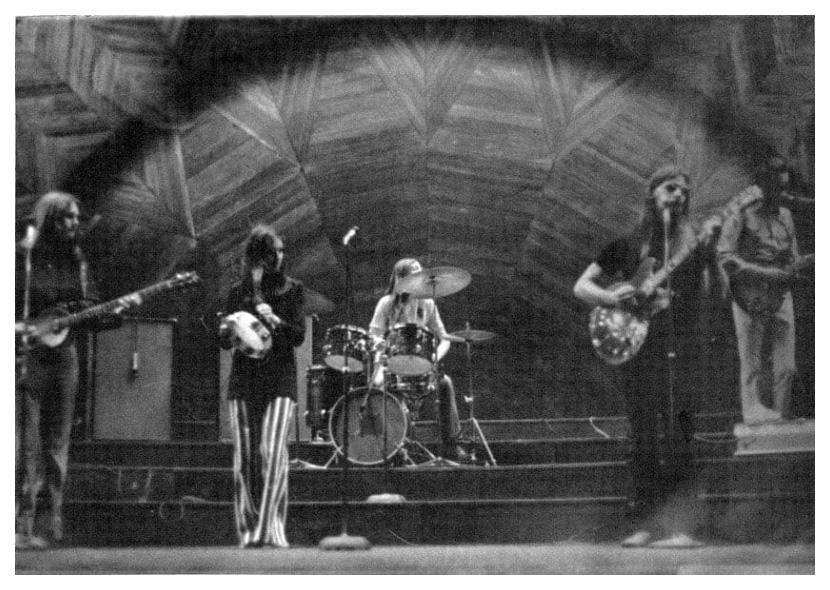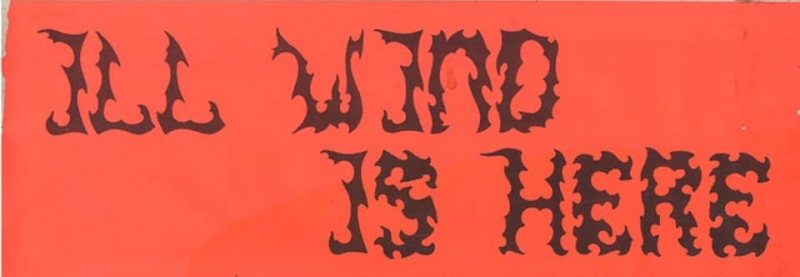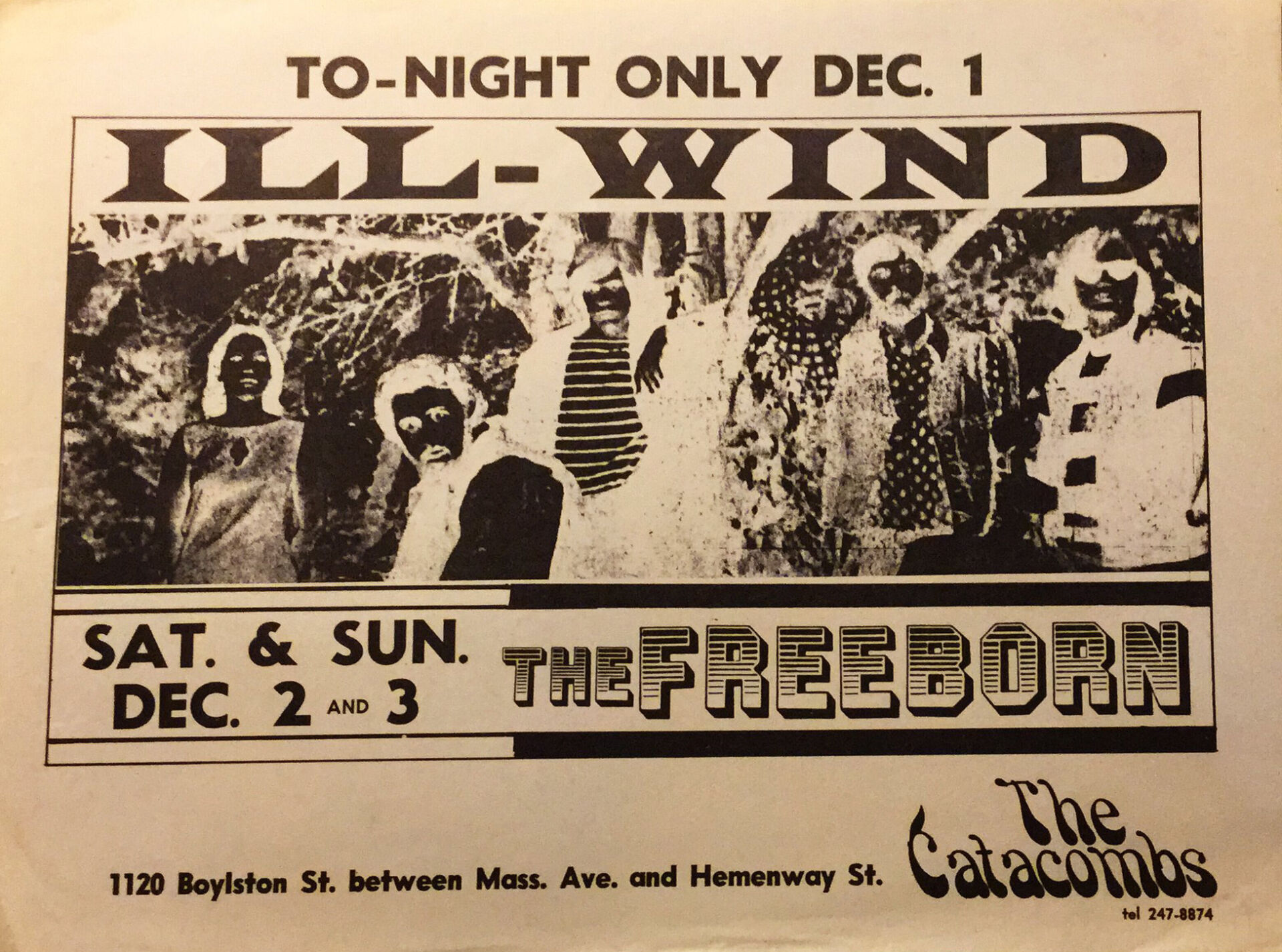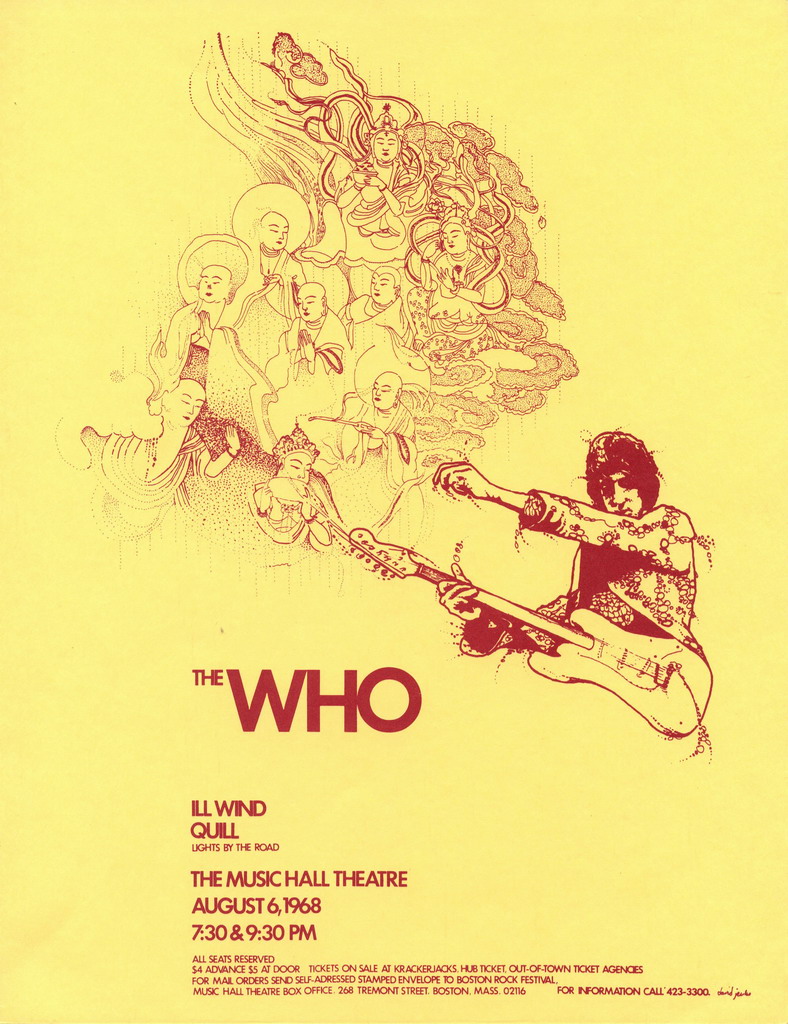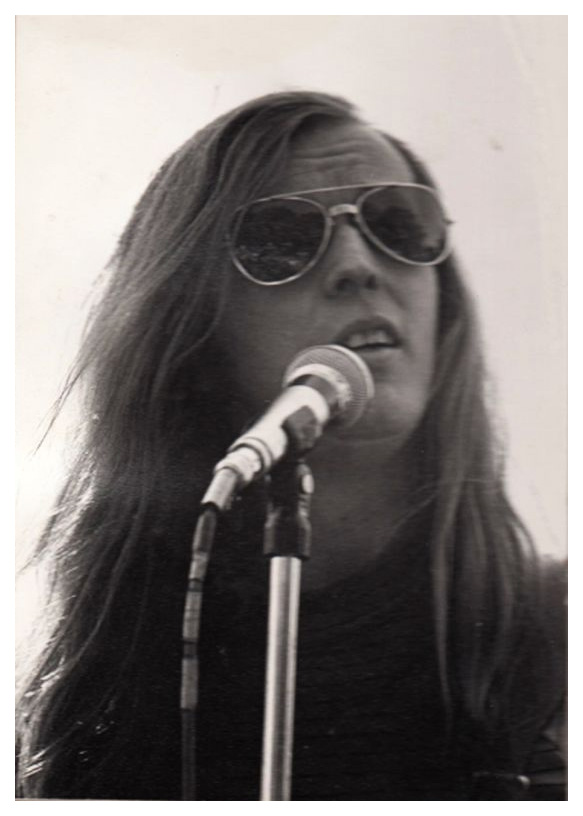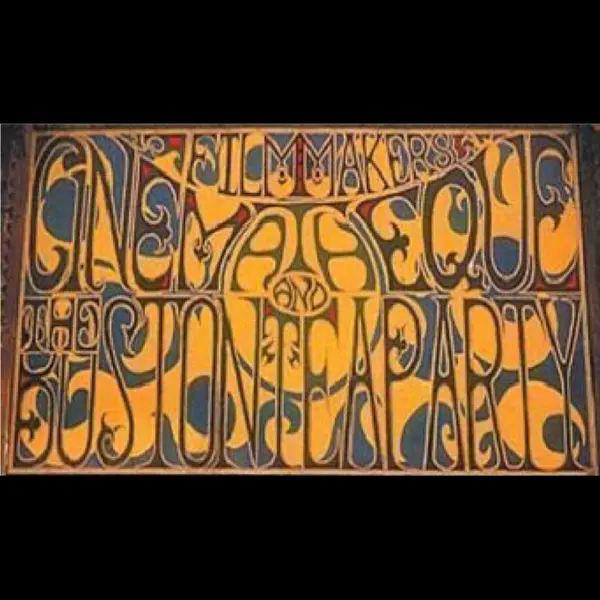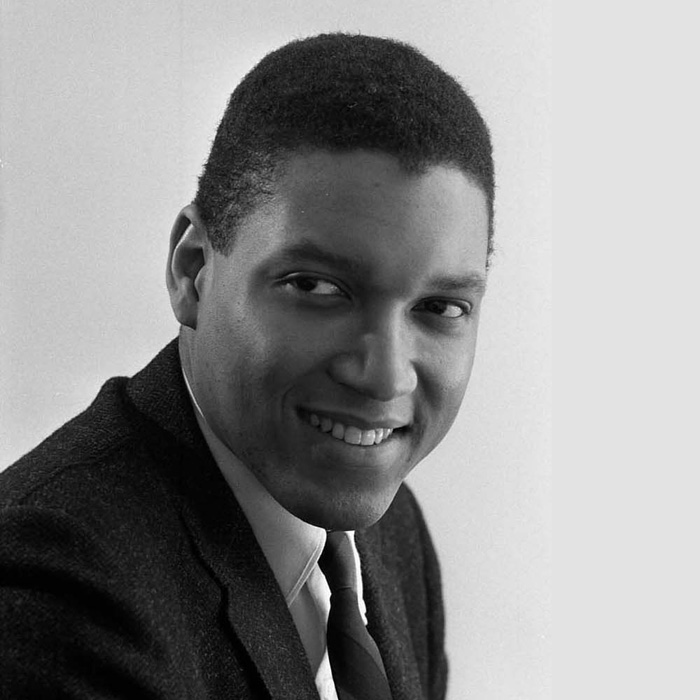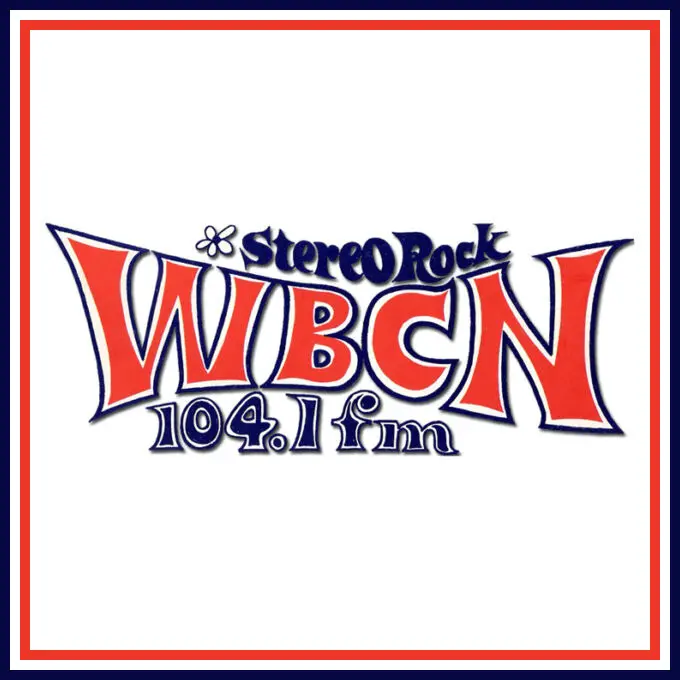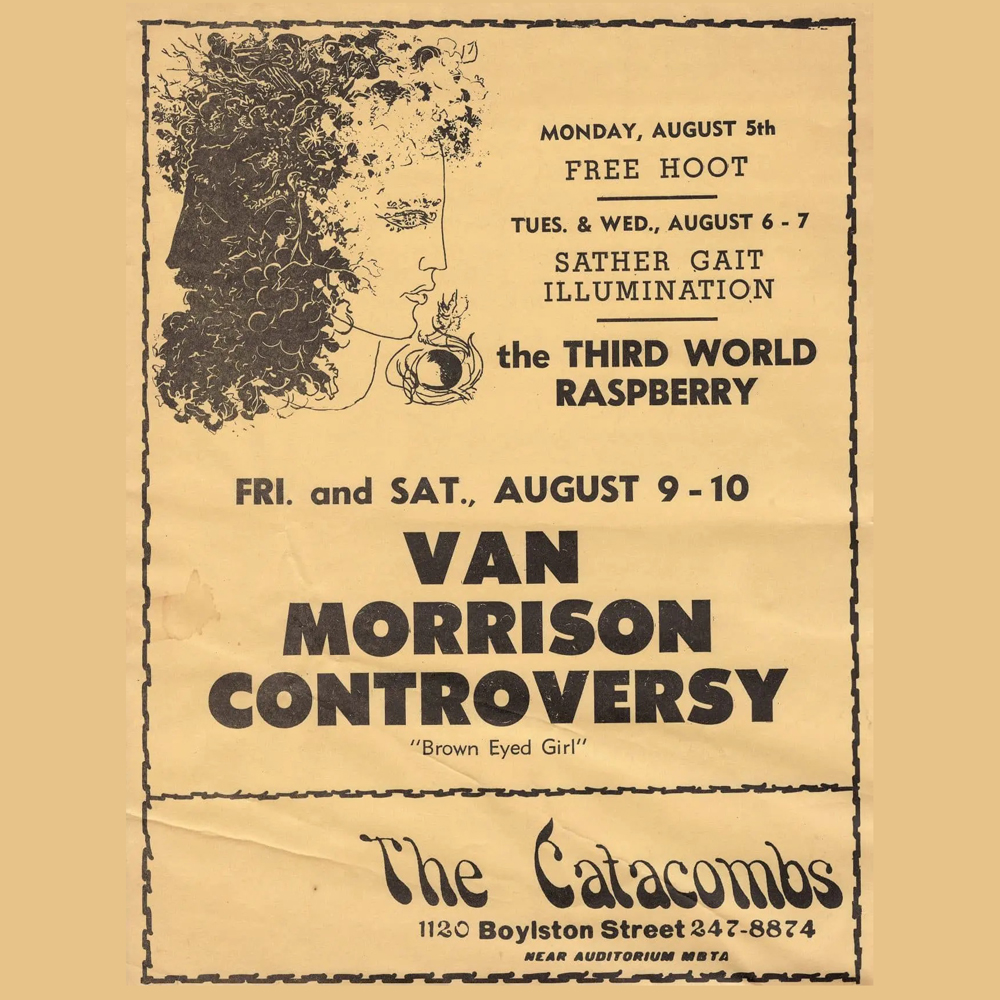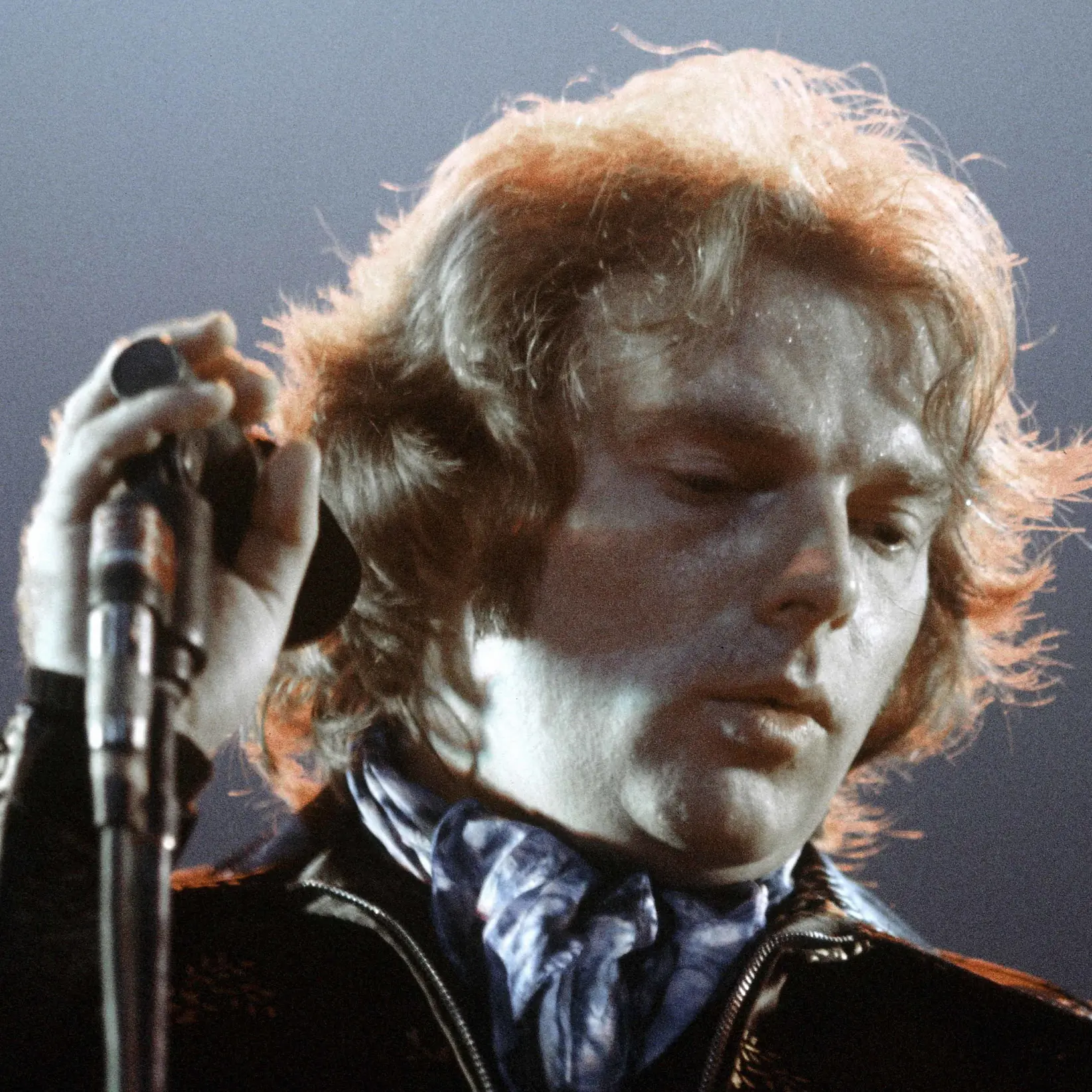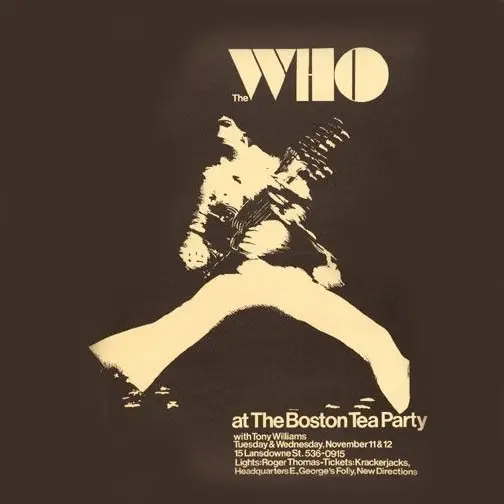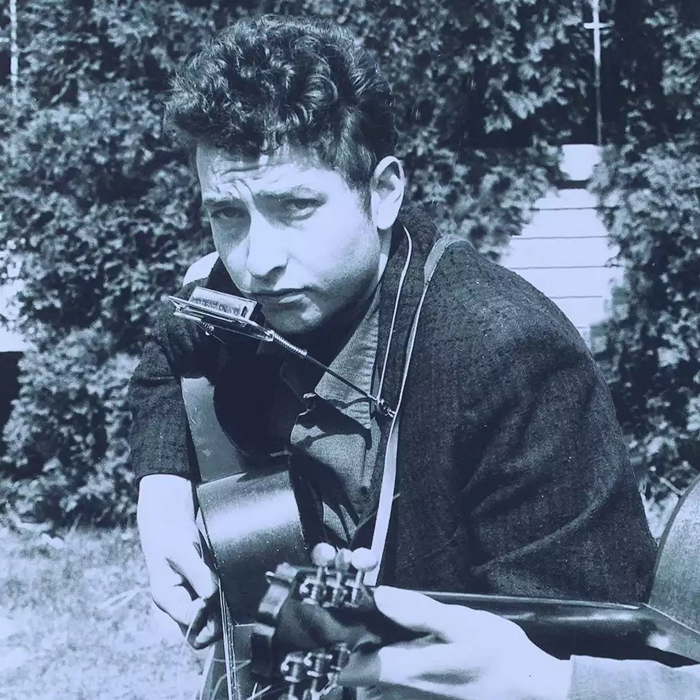Ill Wind
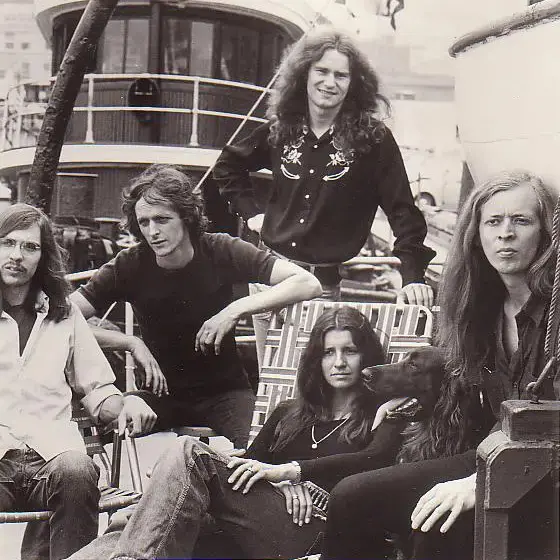
Boston-based Ill Wind was a familiar band on the college and teen dance circuit in New England and New York City during the ‘60s and early ‘70s. The first incarnation featured Ken Frankel on lead guitar, Richard Griggs on rhythm guitar, Carey Mann on bass, vocalist Judy Bradbury and Dave Kinsman on drums and the band mixed folk, rock and bluegrass.
As they evolved into psychedelia and blues, Bradbury left and was replaced by Devanney, who’d been singing in New York City and Jersey Shore clubs. After she came on board, the group had three lead singers and three songwriters, and their songs started to feature complex three-part harmonies and long instrumental jams.
EARLY APPEARANCES, OPENING SPOTS
Ill Wind’s earliest gigs were at college mixers and frat parties in Boston and Cambridge. After recording a demo at Hanley Studios in Medford, they band got their first gig out of the Boston area at a CYO dance in Stoneham. The young kids were so enthusiastic about the new sound that Ill Wind began playing at other CYO and teen dances all around New England, attracting the attention of booking agencies in the process.
At the time, many colleges has substantial entertainment budgets, which meant Ill Wind had plenty of schools to play in New England and New York (both in the city and upstate). They also began appearing regularly at The Boston Tea Party and many of the ballrooms where big bands played in the ‘30s and ‘40s. By 1966, the group was playing out full time and brought in Frankel’s brother to manage and check sound levels at performances and Richard “Berred” Ouellette as road manager. Over the years, Ill Wind opened for many well-known band and artists including The Who, Fleetwood Mac, The Byrds, Moby Grape, Van Morrison, The Rascals, The Buckinghams, Jethro Tull, The Youngbloods, Mitch Ryder and Vanilla Fudge. They also backed Chuck Berry on stage once for a Boston show.
CAPITOL SINGLES, ABC SIGNING, FLASHES
In 1967, the band recorded five songs for Capitol Records at their studios in New York City (produced by Dick Weisman of The Journeymen). Although months of negotiations ensued, no recording contract resulted and the label never released the songs. Frustrated, the band started working with the William Morris Agency, who booked the a West Coast tour.
Upon returning to the Northeast, the group spent two weeks playing on Long Island and New York City, where they met Tom Wilson, who had just formed his own production company after producing albums for Bob Dylan, Simon and Garfunkel and The Mothers of Invention. With his help, the band landed a deal with ABC Records and recorded their 1968 album Flashes, produced by Wilson, and the single “In My Dark World” b/w “High Flying Bird.” The British music magazine Mojo praised the disc as “some of the finest psychedelia conceivable.”
Unfortunately, however, ABC did not press enough albums to meet demand, and many stores couldn’t stock them. Nonetheless, Flashes was reasonably well received and played on radio stations across the US, including WBCN, and was “pick of the week” in several markets. In 2009, British label Sunbeam Records re-released the album (as a double CD and double vinyl album) along with five previously unreleased cuts from Capitol and some earlier recordings.
DISBANDING, REFORMATION, DEATHS
The original band broke up in 1969 and reformed in 1970 with Devanney, Kinsman, Michael Walsh on bass, Walter Bjorkman (formerly of Cloud and Swallow) on lead guitar and Bryant Thayer on piano. Featuring Devanney’s powerful vocals and Bjorkman’s ripping blues guitar, Ill Wind became a big draw at colleges and concert clubs until disbanding in 1973. Interestingly, much more has been written about the band since they broke up. Devanney, Griggs, Bjorkman, Bradbury and Wilson have died; the other members live in New England and California.

